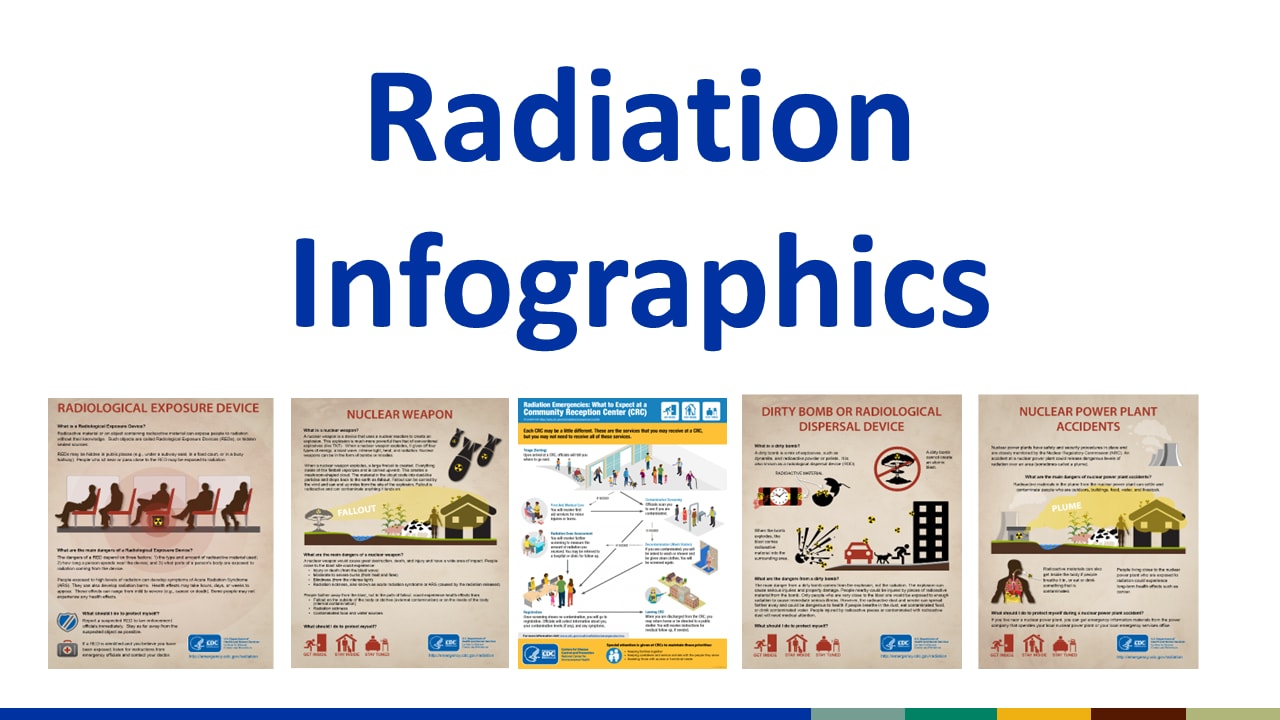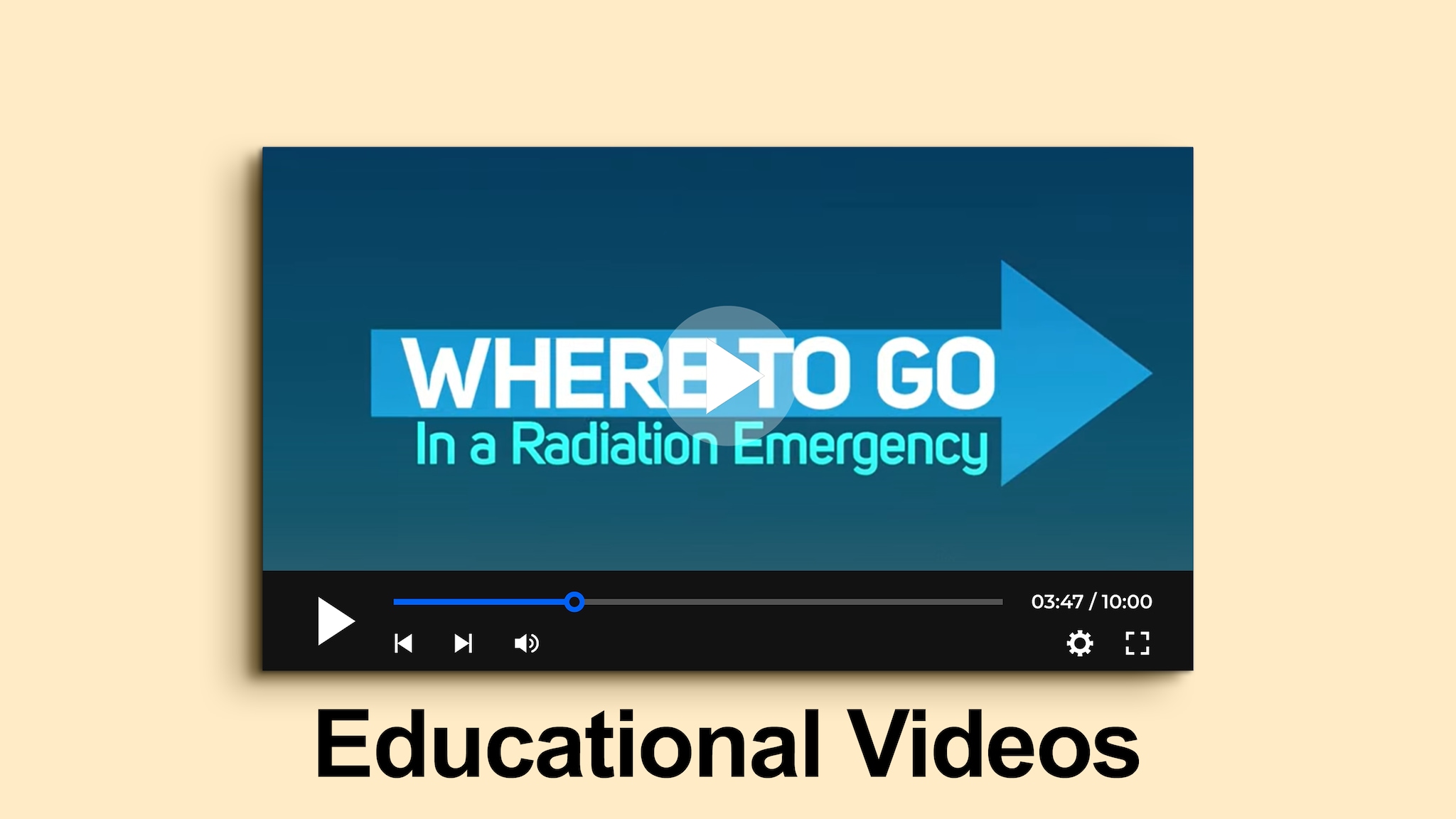Key points
- The best way to protect yourself is to get inside, stay inside, and stay tuned.
- Listen for guidance from emergency officials about ways to help others.

First steps
Get inside
In a radiation emergency you may be asked to get inside a building and take shelter for a period of time:
- This action is called "sheltering in place."
- Get to the middle of the building or a basement, away from doors and windows.
- Bring pets inside.
Stay inside
Staying inside will reduce your exposure to radiation:
- Close and lock windows and doors.
- Take a shower or wipe exposed parts of your body with a damp cloth or wet wipe.
- Drink bottled water and eat food in sealed containers.
Stay tuned
Emergency officials are trained to respond to disaster situations and will provide specific actions to help keep people safe:
- Use radios, televisions, computers, mobile devices, and other tools to get the latest information.
- Emergency officials will provide information on where to go to get screened for contamination.
How to help others
Communicating in an emergency
You can help in radiation emergencies by not using resources that emergency officials need to help others. This includes keeping the phone lines clear by not making calls. Use text messaging instead of phone calls to communicate with friends and family. This will free up lines, allowing people with critical needs to call for help, and will allow emergency responders to communicate with each other.
Providing shelter
Providing shelter to someone who was outside during a radiation emergency can save their life without endangering your own. Ask them to self-decontaminate. This will help limit their radiation exposure and keep radioactive material from spreading.
Evacuating and coping with disasters
You may be advised to evacuate to another area after a radiation emergency to avoid unsafe conditions. Emergency shelters can involve living with many people in a confined space, which can be difficult. Handling emergencies with calm and confidence can help you and children cope.
Caring for people who are pregnant
People who are pregnant should follow protective action instructions from emergency officials. They should seek medical attention as soon as emergency officials say it is safe to do so.
Feeding infants
Parents and caregivers should listen to local officials for information about safe infant feeding after a radiation emergency. Local officials will provide updates on the location of the affected area and the safety of the water for drinking and other uses.
Helping from outside of the affected area
Stay tuned for opportunities to provide help. Contact your local disaster response organizations to find out how to help:
What to watch out for
Short-term health effects
- Acute Radiation Syndrome (ARS): Happens when exposure to a large dose of radiation over the entire body occurs over a short time.
- Cutaneous Radiation Injury (CRI): Happens when exposure to a large dose of radiation causes injury to the skin.
Long-term health effects
- Cancer: People who receive high doses of radiation could have a greater risk of developing cancer later in life, depending on the level of radiation exposure.
- Prenatal Radiation Exposure: It is especially important that pregnant people follow instructions from emergency officials and seek medical attention as soon as emergency officials say it is safe to do so.
- Mental Health: Any emergency, including those involving radiation, can cause emotional and psychological distress.


